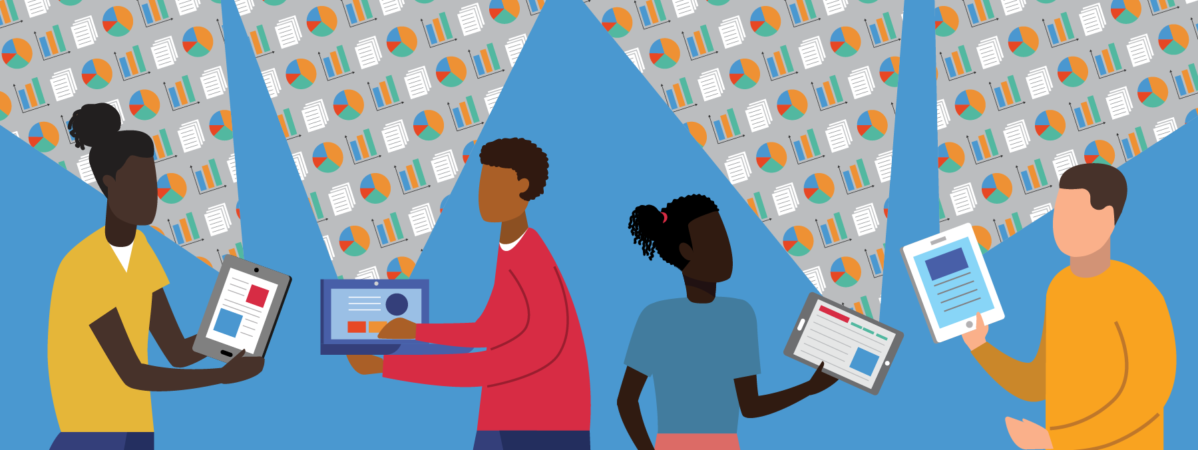
February 24, 2022 | By Parker Van Nostrand
Over the past three years, Digital Promise has engaged educators, districts, students, and product developers in conversations to identify a crucial signal of edtech excellence: a design basis in learning sciences research. When edtech products are built on empirical evidence of how people learn, education leaders can feel confident that their students will experience meaningful learning opportunities. At the same time, companies are better able to articulate the intended educational outcomes of their product.
At Digital Promise, we’ve taken the second anniversary of our very first Product Certification—Research-Based Design—as an opportunity to revisit the importance of designing products with learning sciences research at the forefront. In our new report, An Overlooked Indicator of Edtech Quality: The Use of Learning Sciences Research, we provide an in-depth look at how learners and products alike can benefit from research-infused design. Through a survey of over 25 product respondents as well as five case studies with research-based product teams, we highlight some ways that products see learning sciences research as a beneficial, and even vital, part of their operation.
Find out more of what we learned in the new report.
Digital Promise is thrilled to launch our second edition of the Research-Based Design Product Certification. Ongoing partnerships with educators and education leaders, certified products, and nonprofit organizations have helped us see the value this work has contributed to the field. These results have only further invigorated our belief in the vision that Product Certifications can serve as microphones to amplify the needs of educators and learners in classrooms, and of school and district administrators, to help guide the edtech industry to meet its potential.
We invite educators and education leaders to explore more about this work at our website and call on products to demonstrate that they’ve met these standards by applying to earn certifications.
By Lauren McMahon and Heather Dowd